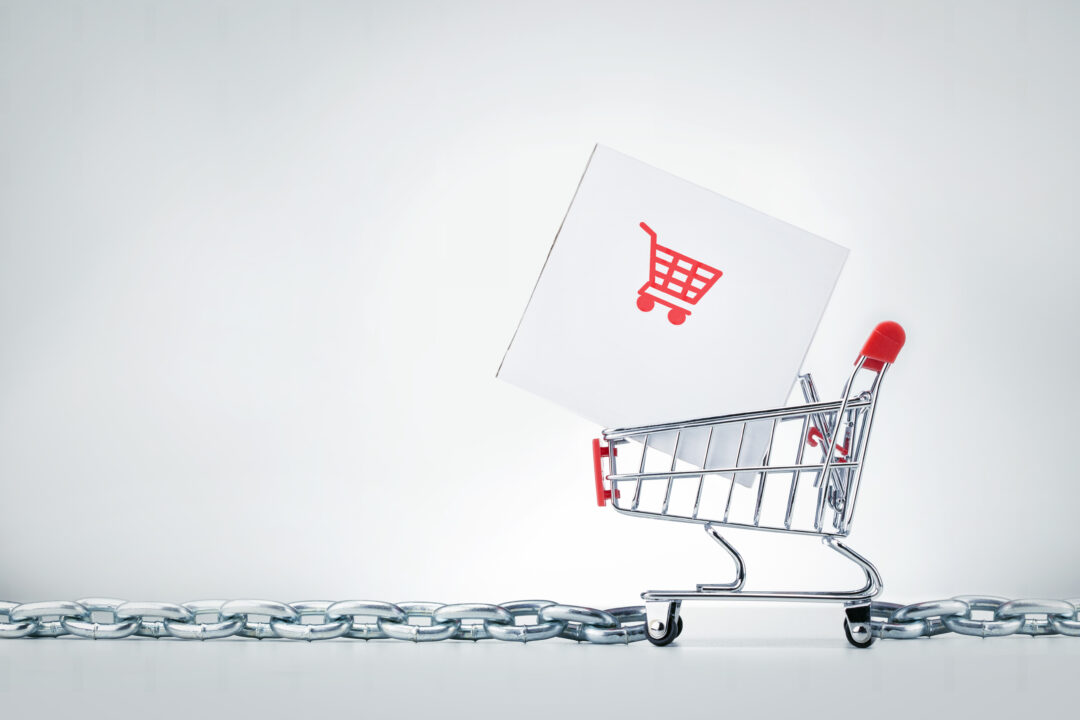There’s no better way to boost your company’s profitability than to adopt a better purchasing policy! The whole process needs to be improved to avoid waste and make savings. However, this procedure is far from simple to put in place…
Nowonder more and more companies are turning to outsourcing their purchasing. Outsourcing is a practical and advantageous solution, especially when the volume of orders is large.
Procurement Outsourcing: definition
Procurement Outsourcing is an increasingly common practice among VSEs and SMEs. It involves entrusting the management of purchasing and supply activities and services to an external service provider. Also known as outsourcing or BPO, this approach is an effective development tool for companies…
Youcan entrust some or all of your purchasing function to experts. It all depends on the company’s needs. Some companies limit themselves to delegating only the management of direct purchasing. However, the service provider also has the expertise to intervene on an organisational level .
But be careful! Outsourcing and subcontracting are two different concepts, even if they are based on the same principle. Outsourcing means establishing a long-term partnership. Subcontracting is a one-off operation.
When should you outsource your purchasing?
There are several situations in which companies may decide to outsource their purchasing function.
To optimise profitability
Good purchasing management has a direct impact on a company’s profitability. Firstly, it guarantees a reduction in costs. The company’s margin will increase. You will also be able to improve the quality of materials purchased from suppliers.
If you adopt good purchasing conditions, you can also prevent major incidents. These include supply disruptions and delivery delays. They could disrupt the production chain.
You can also avoid low-quality raw materials, which will reduce the quality of the finished product. All this will lead to a drop in profitability and the loss of customers.
To compensate for the absence of a purchasing department
Some companies do not have apurchasing department. When they receive a large order, they can opt for outsourcing. This way, they don’t have to recruit experienced buyers.
It should be noted, however, that this approach is fairly costly in the long term.
Identifying the best suppliers
Purchasing departmentssometimes lack the know-how and resources to choose new suppliers. However, it is vital to find qualified and reliable suppliers in order to strengthen the supply chain.
The search for the best suppliers quickly becomes a perilous task if you don’t have the right selection criteria. The same applies if you are short of time. This is the case when you have to process large orders. You need suppliers who are ready to meet your needs quickly.
Using specific and effective methods to find them becomes crucial. That’s why you need to involve professionals, even if it means turning to external service providers.


To make supplier management easier
Purchasing departments often have to work with several suppliers. This makes it difficult to manage supplier relationships. How do you find the right arguments to use when negotiating with each of them? Note that these suppliers offer different products and prices.
The solution is to carry out a meticulous analysis and put in place an effective negotiation strategy. But sometimes purchasing managers don ‘t have these skills. The obvious solution is to outsource operations.
To optimise the purchasing process
Lack of resources is a problem faced by many purchasing departments. Sometimes, in-house skills are not enough. This is the case when a major project needs to be brought to fruition, or when problems arise.
When the task in hand is urgent, outsourcing purchasing is the ideal solution. You don’t have time to recruit. Finding the right profile can take time. Outsourcing means strengthening the skills of the purchasing department and optimising the process.
Making a success of a new product launch
Launching a new product is a major project that needs to be carefully managed. Successful market research is not enough. The slightest problem in purchasing, production or logistics could lead to major losses. With the help of a professional, you can avoid all that.
By opting for outsourcing, you can also avoid the costs of additional staff over the long term. This is important if you need to strengthen you rproduction team. That means recruiting several people at once.
How do you outsource your purchasing?
Outsourcing purchasing is a strategic move thatneeds to be taken seriously. After all, you are entrusting an important task to “outsiders”. The future of your company depends on it. That’s why you need to proceed methodically. Find out how to successfully carry out this outsourcing project.
Plan the project
If you want to entrust your purchasing department to an external service provider, you need to plan the project well in advance .
This means setting up a team to study the project carefully. Its job is to identify the risks and draw up an effective implementation plan. Good planning will ensure that the process runs smoothly. It may be a good idea to draw up a set of specifications to set out your requirements in detail.
Drawing up an outsourcing strategy
As areminder, outsourcing is a long-termcontract. It is therefore in your interest to develop an effective strategy to avoid problems. Loss of control is one of the main risks.
By entrusting purchasing management to an external service provider, you may find it difficult to control things. But you still need to have your say.
Analyse the costs and effectiveness of the approach
Outsourcing purchasing does not mean taking a back seat and waiting for results. You first need to know what the substantial savings generated by the project will be. The wrong estimate could reduce profits and render the process pointless.
Ideally, you should assess the costs and purchasingperformance of thecompany you want to outsource. You need to take into account the type of market and products.
Selecting the right service provider
Choosing the service provider who will manage your purchasing is very important. A rigorous selection based on relevant criteria is necessary. It must be a reliable service provider with the necessary know-how to improve purchasing performance. It must be capable of :
- good purchasing coordination
- better stock management
- better supplier management,
- improving the supply process,
- cost reduction,
- problem solving,
- implementation of relevant and effective purchasing strategies,
- optimisation of strategic purchasing.
Of course, service fees are one of the criteria that should not be overlooked. You need to assess whether your intervention really offers economic advantages.
Comparing several offers will enable you to identify the ideal service provider.
Negotiating with the service provider
You have every right to negotiate with the service provider regarding the quality of the offer and the cost of the services. Outsourcing must be efficient, regular and affordable.
Otherwise, you won’t be able to achieve the desired results. The terms of these negotiations should be included in the contract.
Centralise purchasing and manage outsourcing
To make a success of the outsourcing project, you first need to centralise purchasing. The aim is to reduce, or even eliminate, indirect or dissidentpurchases. These can generate hidden costs. It is therefore important to identify the major purchases that should be entrusted to the service provider.
Finally, the management of the outsourcing process and the relationship with the service provider also need to be considered in advance. If you don’t have apurchasing manager, you need to create an entity that will work closely with him or her .
It should draw up a scorecard with performance indicators. This will enable you to assess whether outsourced purchasing is effective .
What are the advantages of outsourcing purchasing?
There are several advantagestooutsourcing purchasing.
Cost control and reduction
Outsourcing strategic purchasing is also a solution for rationalising purchasing costs. The company’s financial expenses can also be reduced, since all operational processes will be handled by an external service provider.
There will only be a single monthly invoice to pay, regardless of the volume of purchases made. What’s more,the service provider im plements effective purchasing strategies. These are designed to reduce costs.
Reducing the risks of guaranteed savings
The external service provider will develop more efficient purchasing methods. This allows you to reduce procurement risks. Optimising the process also guarantees you large-scale savings.
Reduced administrative costs
With multiple orders, the purchasing process becomes a complex and tedious operation. You have several tasks to perform, such as :
- issuing purchase orders
- choosing suppliers
- negotiating prices
- invoicing,
- make payments….
It’s all very time-consuming. Outsourcing purchasing can simplify your task. It also allows the team to concentrate on its functional needs. They will finally be able to focus on business development and the sale of finished products.
However, you still need to monitor procurement-related activities. You can do this more easily by using a management solution like Weproc, which is designed to help you improve your purchasing practices.
Want to learn more about our Weproc procurement management software?
Contact us or request your 15-minute demo below!





